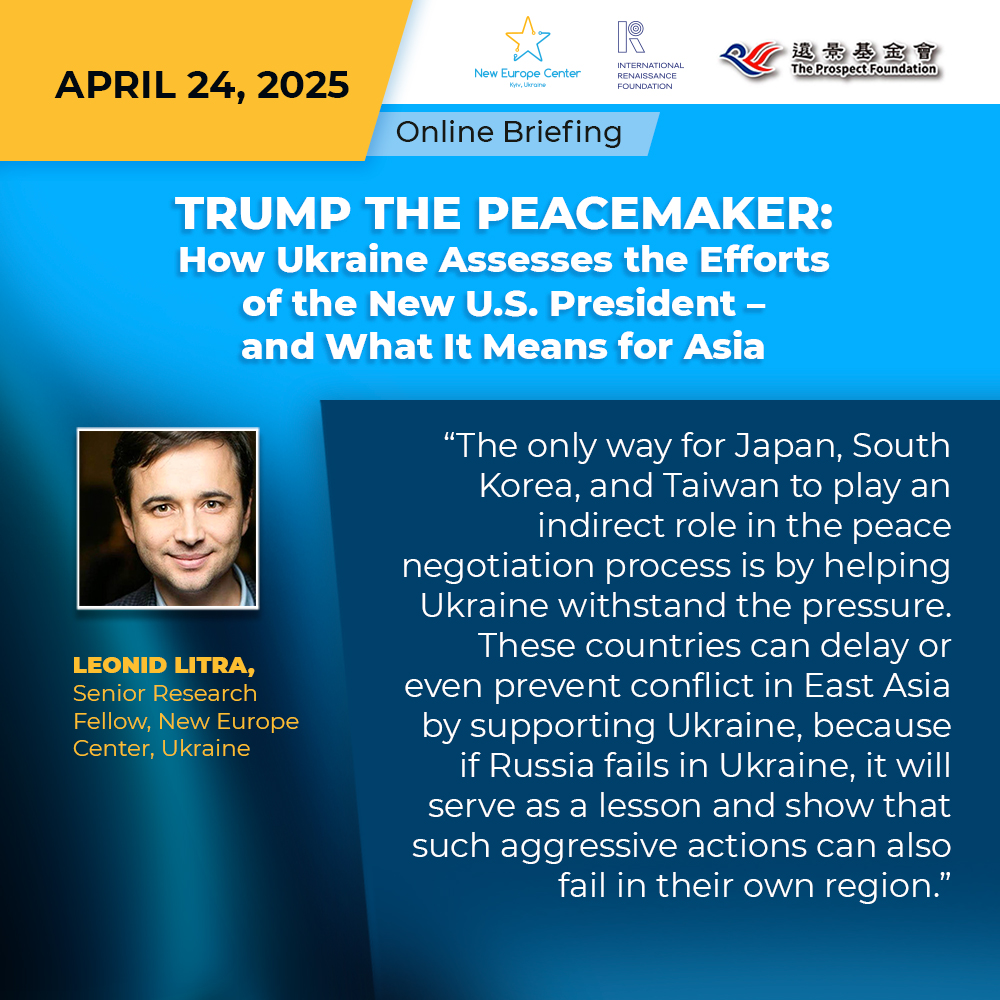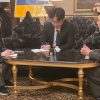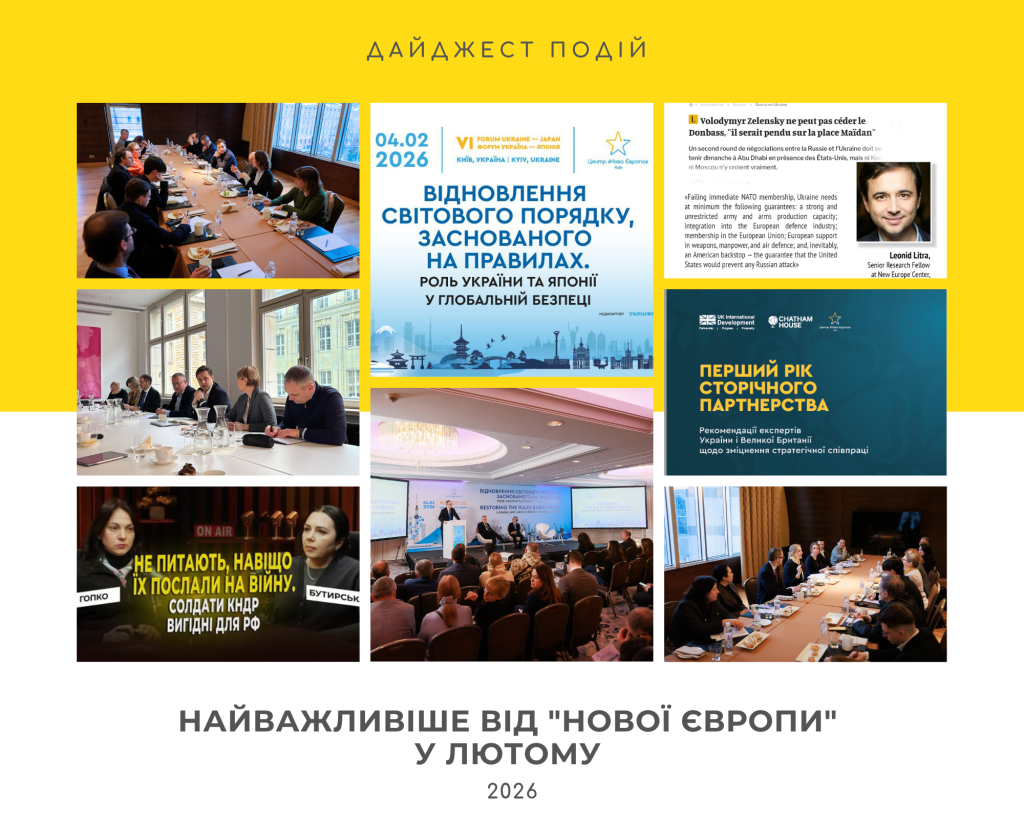
Leonid Litra, Senior Research Fellow, New Europe Center, Ukraine, during the online briefing “Trump the Peacemaker: How Ukraine Assesses the Efforts of the New U.S. President – and What It Means for Asia” emphasized the role of key Asian democracies in the negotiation process.
Please, find below the key messages the expert presented to opinion leaders from Asian countries:
There is no simple answer if Donald Trump can bring an end to Russia’s aggression against Ukraine. Above all, we believe that achieving peace requires President Trump to listen to and consider Ukraine’s position. So far, we have observed negotiations between the United States and Russia, but there has been no direct negotiation between the U.S. and Ukraine. What we are seeing instead is a flow of messages: proposals from Putin conveyed to the Americans, who then relay them back, without Ukraine at the table. So unfortunately we are unable to shape the agenda of these peace negotiations. This is a fundamental flaw in the peace process.
Trump can only become a peacemaker at the expense of Ukraine, meaning that peace would require Ukraine to make unilateral concessions. This is not something Ukraine is prepared to accept, nor would it be welcomed by countries in East Asia.
It appears that the business track is more important for the U.S. than the respect for international norms, agreements and for alliances they have. And this is a very big challenge for the countries that have alliances with the U.S.
Prime Minister Kishida a couple of years ago said in the U.S. that Ukraine could be the East Asia of tomorrow. This is the most concise and precise statement of why what happens in Ukraine is important to the rest of the world.
The fact that we have arrived these days to discuss things which were unimaginable a couple of months ago is also very dangerous for the East Asia countries. And if a settlement does not entirely serve the U.S. interests, then there could be significant negative repercussions for its allies across the world.
The conclusion many countries are beginning to draw, particularly in Europe, and increasingly in Asia, is that they need to reduce their reliance on the U.S. and build greater strategic independence. This is perhaps the key takeaway from current events.
On the topic of U.S. withdrawal and its implications, we must be precise. If the U.S. withdraws diplomatically but continues to supply weapons, especially those essential for Ukraine’s defense, such as air defense systems, this scenario, while not ideal, could still be workable. However, if withdrawal means not only pulling out of negotiations but also cutting off defense cooperation and blocking third-party transfers of U.S.-made technology, the consequences would be much more severe.
There is also a broader geopolitical dimension: a U.S. withdrawal will not only affect Ukraine. Since the start of Russia’s full-scale invasion, the U.S. has played a pivotal role in isolating Russia on the world stage. If the U.S. retreats, this process of isolation may stall, or even reverse.
My message to most countries across the world is: don’t think this won’t have repercussions for you. It’s better to act now to support Ukraine, because you are not just supporting Ukraine itself, but also the future system of normal, rules-based international relations.
The only way for Japan, South Korea, and Taiwan to play an indirect role in the peace negotiation process is by helping Ukraine withstand the pressure. These countries can delay or even prevent conflict in East Asia by supporting Ukraine, because if Russia fails in Ukraine, it will serve as a lesson and show that such aggressive actions can also fail in their own region.
Video recording of the online briefing is available in English on New Europe`s Youtube Channel.
The online briefing was organized by the New Europe Center (Kyiv, Ukraine) in partnership with the Prospect Foundation (Taipei, Taiwan) and supported by the International Renaissance Foundation (Kyiv, Ukraine).







